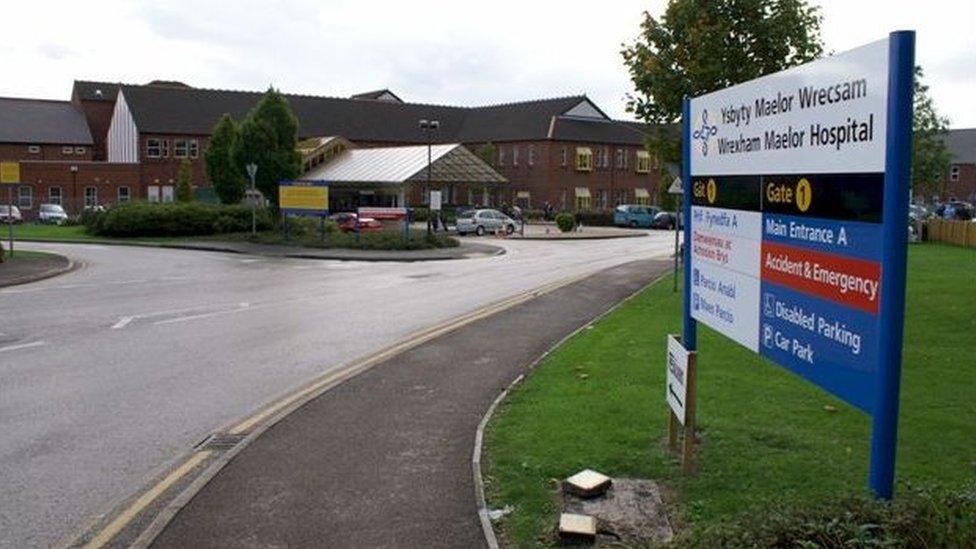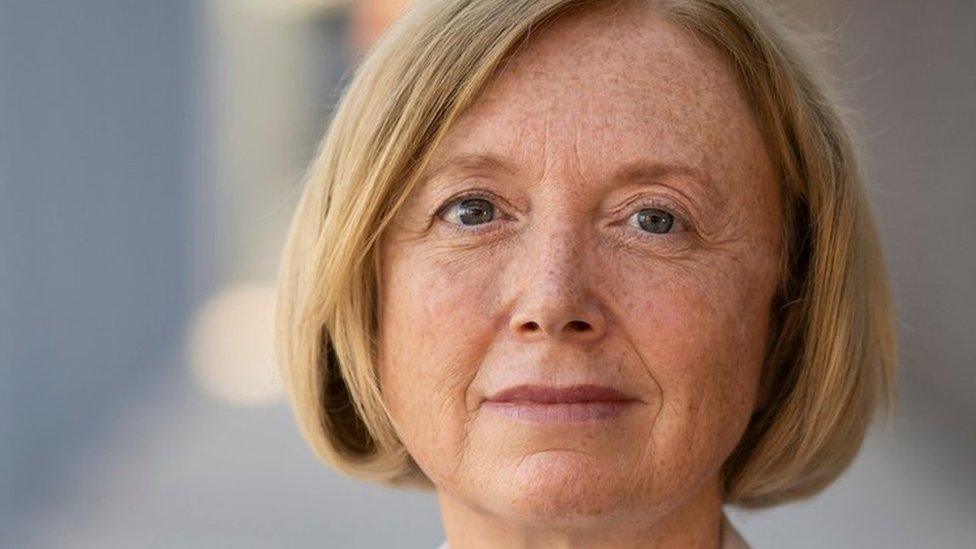Wrexham Maelor Hospital like warzone, coroner says
- Published

Ruthin coroner's court heard Malcolm Unwin suffered a fractured skull and bleeding on his brain
Hospital conditions that saw a 79-year-old man suffer a fatal fall were compared to a warzone by a coroner.
Malcolm Unwin was found on the floor near his bed on 30 December 2022.
He had a fractured skull and bleeding on the brain and died on 6 January. A coroner recorded a conclusion of accidental death.
The inquest heard 24 patients on Wrexham Maelor's arrivals ward were cared for by a staff nurse, an agency nurse and a health care assistant.
That was eight more patients than recommended and staff nurse Jade Evans said in a statement that the three of them were struggling to cope.
Ruthin Coroner's Court heard she was upset as patients were waiting for medication and one was aggressive.
"Staffing levels were unsafe and we were unable to provide care effectively," she said.
"It was an extremely challenging shift."

Coroner John Gittins compared the conditions to a warzone
Agency nurse Emma Thomas said no staff had a break during her 12-hour shift.
John Gittins, senior coroner for North Wales East and Central, said: "It sounds like a warzone - horrendous - and I can't begin to imagine the pressures which staff were working under with a degree of compassion."
Former Daily Post courier Mr Unwin, of Pantymwyn in Flintshire, was admitted to hospital with bladder cancer.
He had fallen previously on 22 December but that was not mentioned to the new shift team and he was not risk assessed.
Ward manager Claire Parry said it was not unusual for there to be so many patients on the ward and a review after Mr Unwin's death found gaps in risk assessment procedures and documentation.
Mr Gittins said he was satisfied steps had been taken to address issues, but said he remained concerned about staff working under difficult conditions and the risk of assessments not being done.
Related topics
- Published23 April 2023

- Published15 August 2023

- Published13 August 2023
